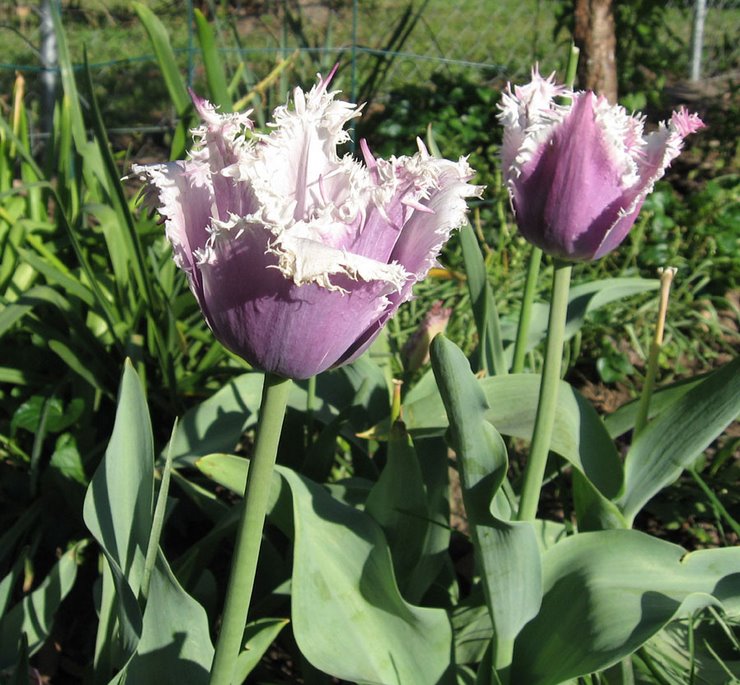I'm waiting inside, doing some computer work, until it cools down a bit so that I can get out in the garden again. I spent about 3 hours this morning before church time, getting some weeding and clean-up done, plus feeding my plants. The last several years, I've used a range of fertilizers: primarily compost, supplemented with organic fertilizers. Some you dig in as you plant; some you add to the watering can, and this morning I was using foliar feeding--fertilizer sprayed onto the leaves of the plants.
Foliar feeding is said by some folks to be the best way to fertilize/feed your plants; that more of the nutrients are absorbed by the plant this way, with far better results than root feeding. Other sources say it is at best a supplement to root feeding, that plants simply can't absorb enough through their leaves, and are not designed to circulate nutrients from the leaves to other parts of the plant.
Last summer I tried an experiment. I took two geraniums from the
same source, as similar as I could find, and planted them in identical
pots, with the same fresh potting soil. I kept them side by side, in
the same light, and watered them the same. One I sprayed weekly with a
well-known foliar fertilizer, and the other I did not. I continued this
all summer long. At the end of the summer, I could see very little
difference between the two plants. Needless to say, I don't plan to
invest a lot in more of this fertilizer!
One of the primary ideas in organic gardening is to feed the soil to feed the plants. Every time I plant anything, I dig in lots of compost (compliments of my hard-working bunny crew). Well-aged compost adds some nutrients as well as improving the texture of the soil. The soil in my yard when I first moved here was basically clay--when it was dry, it was hard as a rock. Years of adding compost is definitely making a big difference.
The main fertilizer I use is an ocean-based fertilizer (made from fish, kelp, etc.), to supplement the nutrients that my garden gets from all the compost. I understand that kelp has a lot of the micro-nutrients that plants need that may otherwise be in short supply in the soil.


No comments:
Post a Comment